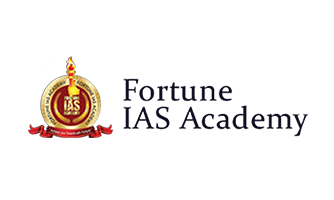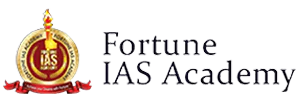In a landmark event celebrating 100 years of the Union Public Service Commission (UPSC), Chairman Dr. Ajay Kumar did something unprecedented: he stepped into the spotlight for a live, candid town hall with civil services aspirants. This first-of-its-kind interaction broke down the ivory tower, addressing the very pulse of the exam community—reforms, fairness, coaching, and the secrets to success.
For anyone on the UPSC journey, here are the pivotal takeaways from this historic conversation.
A Centenary of Trust: Reaffirming UPSC’s Core Mission
Dr. Ajay Kumar began by framing the UPSC’s role not just as an examining body, but as the nation’s architect for its future leadership. As it enters its 100th year, the commission’s commitment to neutrality, meritocracy, and integrity remains stronger than ever. He emphatically stated that the UPSC is immune to external pressures and maintains a zero-tolerance policy towards any form of cheating, with strict penalties including multi-year debarment and criminal action.
Demystifying the Process: The Chairman’s Direct Answers
1. The Rationale Behind Key Policies
August 1st Cut-off Date: This isn’t an arbitrary date. It’s a deliberate policy that allows graduates completing their degrees in May-June to attempt the exam sooner, saving them a precious year.
CSAT is a Gatekeeper, Not a Kingmaker: Addressing the perennial “urban/engineering bias” charge, Dr. Ajay Kumar clarified that the CSAT, requiring just 33% to qualify, is a balanced paper. Its scores don’t count towards the final rank, and its design (split between language, math, and logic) ensures a level playing field for all backgrounds.
2. Transparency & The Answer Key Debate
Why the delay in releasing prelims answer keys? The Chairman explained it’s a meticulous process involving subject experts and a review of candidate challenges to ensure absolute accuracy before release. He also revealed that the demand for immediate key release is currently sub judice before the Supreme Court.
3. The “Why” of Optional Subjects
Defending their significant weightage (about 2/7th of the Mains score), he stated that optional subjects are crucial for assessing a candidate’s ability to achieve mastery and depth in a field—a key indicator of their capacity to grasp complex subjects as future civil servants.
4. No Change in Age Limit or Attempt Rules
Addressing frequent rumors about potential changes, Dr. Ajay Kumar gave a clear and direct statement: “There is no proposal to change the age limit or number of attempts.” He emphasized that the current rules—32 years for the General category (6 attempts), 35 for OBC (9 attempts), and 37 for SC/ST (unlimited attempts)—are well-balanced and time-tested, having evolved to a stable state over the years.
Busting Aspirant Myths: Data Over Anecdotes
Myth: Engineers have an unfair advantage.
Reality: The data shows many successful engineers qualify with humanities optional subjects. Evaluation is anonymous, and the CSAT is only a qualifying hurdle. There is no inherent bias.
Myth: You need coaching to succeed.
Reality: Dr. Ajay Kumar asserted that coaching is not a prerequisite. The increasing number of success stories from Tier 2/3 cities and rural areas, often without formal coaching, is a testament to this. He viewed the coaching ecosystem as a symptom of gaps in the broader education system.
Myth: Your background influences your interview score.
Reality: Your hometown, college, or socio-economic status has zero impact. The interview panel, comprised of seasoned experts, assesses only the candidate before them. Data confirms that marks are proportional across categories.
A Glimpse into the Future: UPSC 2.0 & Aspirant Support
Marking its 100-year journey, UPSC is embracing a digital and supportive future:
Tech-Enabled Integrity: A new examination portal, Aadhaar integration, and face authorization at exam centers are being rolled out to combat impersonation.
Pratibha Setu: A visionary bridge connecting talented candidates who aced the interview but missed the final list with opportunities in public and private sectors.
Year-Round Helpdesk: Acknowledging past grievances, Dr. Ajay Kumar announced the establishment of a permanent, year-round customer support system, moving away from the limited-period helpdesk.
The Chairman’s Personal Playbook for Success
Sharing from his own journey (as an IIT alumnus who chose the IAS), Dr. Ajay Kumar’s advice was refreshingly grounded:
- Fuel Your Curiosity: Never stop asking “why?”—it’s the engine of true learning.
- Consistency Over Cramming: Discipline and daily, focused effort trump last-minute heroics.
- Master Your Time: Effective time management is the ultimate meta-skill for this exam.
- Cultivate a Resilient Mindset: Self-belief and perseverance are your most valuable assets.
A Final, Reassuring Message
Perhaps the most powerful takeaway was Dr. Ajay Kumar’s closing thought. He urged aspirants to dream big and work hard, but also to remember that the civil services is not the “end of the world.”
The skills honed during this preparation—immense discipline, vast knowledge, and unwavering determination—are invaluable and will open doors to numerous other fulfilling opportunities. The journey itself is the transformation.
This historic interaction, in UPSC’s centenary year, signals a more transparent, communicative, and aspirant-friendly commission, ready to build the next generation of India’s leaders.


